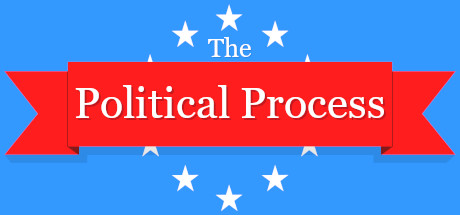
131
Players in Game
1 829 😀
79 😒
91,14%
Rating
$14.99
The Political Process Reviews
Explore a dynamic world of politics in this turn-based, political simulator. Create a character, run for political office, write legislation, balance budgets, and more as you move up the political hierarchy.
| App ID | 1184770 |
| App Type | GAME |
| Developers | Verlumino Studios LLC |
| Publishers | Verlumino Studios LLC |
| Categories | Single-player, Steam Cloud |
| Genres | Indie, Strategy, Simulation, Early Access |
| Release Date | 22 Nov, 2019 |
| Platforms | Windows |
| Supported Languages | English |

1 908 Total Reviews
1 829 Positive Reviews
79 Negative Reviews
Very Positive Score
The Political Process has garnered a total of 1 908 reviews, with 1 829 positive reviews and 79 negative reviews, resulting in a ‘Very Positive’ overall score.
Reviews Chart
Chart above illustrates the trend of feedback for The Political Process over time, showcasing the dynamic changes in player opinions as new updates and features have been introduced. This visual representation helps to understand the game's reception and how it has evolved.
Recent Steam Reviews
This section displays the 10 most recent Steam reviews for the game, showcasing a mix of player experiences and sentiments. Each review summary includes the total playtime along with the number of thumbs-up and thumbs-down reactions, clearly indicating the community's feedback
Playtime:
1720 minutes
Amazing political simulator. wouldn't recommend anything else. cant wait for the third-parties update!
👍 : 1 |
😃 : 0
Positive
Playtime:
4350 minutes
This game is awesome! Really addicting, for some reason. But overall 10/10 and I can't wait for future updates!
👍 : 1 |
😃 : 0
Positive
Playtime:
2857 minutes
the best political simulator out there
👍 : 2 |
😃 : 0
Positive
Playtime:
1743 minutes
this game doesnt let u run for open seats u have to guess which seat will be open, change and hope for the best
👍 : 1 |
😃 : 1
Negative
Playtime:
275 minutes
Just literally bad. So hard to learn, even when your policies agree and you do everything you can do, you end up losing even in school board
👍 : 1 |
😃 : 0
Negative
Playtime:
6343 minutes
It's confusing at first, so give it time. After playing long enough and building your confidence, you can lose an election IRL! <3
👍 : 0 |
😃 : 1
Positive
Playtime:
6178 minutes
Awesome game, very in-depth simulator of the US political system. Dev actively responds on the steam discussion forums if you ever have any issues or suggestions for the game.
👍 : 0 |
😃 : 0
Positive
Playtime:
1516 minutes
Good game
I think it would be cool if you could vote in elections, may not be a big mechanic but it feels immersive.
👍 : 0 |
😃 : 0
Positive
Playtime:
1453 minutes
The Political Process, developed by Verlumino Studios, is a deep and unflinching political simulation game available on Steam that offers a granular, almost surgical look at the inner workings of American democratic systems. Rather than packaging politics in flashy visuals or narrative gloss, it opts for spreadsheets, data tables, and raw mechanics to immerse the player in the complexities of governance, policy-making, campaigning, and political ideology. While not for the faint of heart or casual gamer, The Political Process stands as one of the most intellectually demanding and rewarding experiences for those who want a true simulation of American politics at every level—from the smallest school board election to a full-blown presidential run.
At its core, the game allows the player to create a character and participate in the U.S. political system in a myriad of ways. You can start your career as a local candidate for city council or a school board, gradually working your way up to state government, Congress, and potentially the presidency. Alternatively, you can take on roles as a campaign manager or lobbyist, influencing policy and elections without being a public figure yourself. The breadth of career paths and political engagement types is impressive and provides genuine replayability. What makes this structure so compelling is how it reflects the real-world ladder of political influence, showing how power is accumulated not overnight, but through long-term strategic planning, networking, and constituency management.
One of the game's most defining features is its robust system of political ideologies and policy-making. The game doesn’t just lump candidates into Republican or Democrat labels; it creates an ideological spectrum across numerous policy issues—healthcare, education, taxation, foreign policy, and more. You shape your candidate’s stance on dozens of topics, each with multiple levels of opinion that impact how voters, donors, and party members perceive you. This system encourages the player to build a coherent political identity while navigating the demands of their constituency, balancing idealism with the brutal pragmatism needed to get elected and stay in power. Policy decisions have consequences, and the game tracks legislative history, budget deficits, public opinion, and approval ratings with painstaking detail.
Elections are a major gameplay mechanic and are far more than just popularity contests. Running a campaign involves scheduling events, managing funds, hiring staff, delivering speeches, attending debates, creating ads, and analyzing polling data. The simulation models voter turnout, demographic shifts, and district partisanship, all of which affect election outcomes. You can't coast on charisma alone—you must read the political landscape, identify key issues, and decide where to spend resources. The game doesn’t script election outcomes, which means every campaign feels unique and unpredictable, often mirroring the real-world chaos and nuance of electoral politics.
The procedural generation of cities, states, and political environments ensures that no two playthroughs are the same. Each area has unique demographics, income levels, education rates, and ideological leanings, all of which interact dynamically with your policy platform. The game lets you craft bills, pass legislation, and monitor their impact over time, making it possible to shape society incrementally according to your vision. If you pass a universal healthcare bill, for example, it may raise your approval among working-class voters but anger wealthy donors or business interests. These systemic interactions give the game an emergent quality where the consequences of your decisions may not become clear until several turns—or elections—later.
Visually, the game is utilitarian. There are no 3D character models, campaign rallies with roaring crowds, or cinematic cutscenes. Instead, you get charts, numbers, sliders, and text. While this lack of visual flair may turn off those seeking immersion in a traditional sense, it serves the simulation-first design. Everything you need is presented in a clear, if dense, interface. The UI does have a learning curve—particularly for new players—but once understood, it offers quick access to an enormous amount of information. The lack of unnecessary visual clutter actually helps maintain focus on what matters: the data, the trends, the policies, and the political maneuvering.
One of the more impressive aspects of The Political Process is how it doesn’t shy away from representing the darker realities of politics. Gerrymandering, media manipulation, campaign finance controversies, lobbying, and populism are all present, not as plot devices but as game mechanics. You can choose to run a clean campaign or dive into more ethically questionable tactics. The game doesn’t judge you for it, but it makes clear that there are trade-offs. The same tools that help a player game the system can also lead to public backlash or legal trouble if used recklessly. This moral grayness adds depth and realism that few other political sims dare to tackle.
Despite its strengths, The Political Process is not without its limitations. The lack of sound design, music, and graphical polish may be off-putting to players accustomed to more sensory-rich experiences. Additionally, the steep learning curve and information-heavy interface might overwhelm newcomers who are not already familiar with political science or government operations. The game is clearly targeted at a niche audience, and while it executes its vision brilliantly within that scope, it’s unlikely to appeal to casual gamers or those seeking instant gratification. Furthermore, while regular updates have improved the game significantly over time, occasional bugs or balance issues can still emerge in longer playthroughs.
That said, for those who can embrace its design philosophy, The Political Process is a masterclass in simulation. It treats politics not as a spectacle but as a system—a sprawling, interconnected web of influence, ideology, and consequence. Every vote cast, every speech written, every bill passed adds to a living world that responds to your actions. There’s a constant tension between staying true to your platform and adapting to public sentiment, between chasing power and making change. That complexity is exactly what makes the game rewarding.
In the end, The Political Process is not about winning or losing in the traditional gaming sense—it's about understanding the machinery of governance and navigating it with strategic intelligence. It is a game of patience, foresight, and adaptation. For players willing to dive deep into its systems and invest the time to learn, it delivers one of the most authentic and detailed simulations of politics ever created in a video game. It’s not flashy, but it doesn’t need to be. Its power lies in how it makes you think—about leadership, democracy, compromise, and the high-stakes game of shaping a nation.
Rating: 9/10
👍 : 10 |
😃 : 0
Positive
Playtime:
40762 minutes
Probably the best American politics sim out there. Unfortunately no option to rally your cult into a coup attempt.
👍 : 16 |
😃 : 9
Positive







